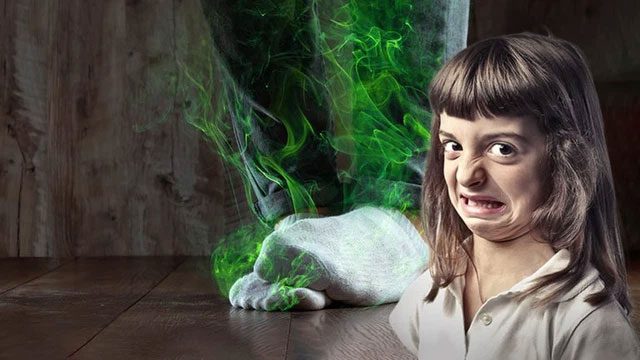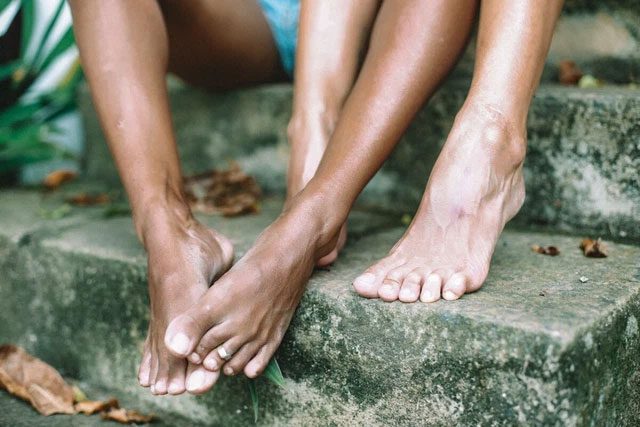Personal hygiene is one of the most important daily “tasks” for many people. This includes regularly washing your feet, or at least doing so every time you come home and take off your shoes. But what if you decided to stop washing your feet altogether? The immediate consequence that everyone can predict is that your feet will start to smell terrible; however, this is still quite normal, as you will be at risk of various infections, and may even face the possibility of amputating your feet.
It is a fact that no matter how clean you are, your feet are still home to various bacteria and 200 different types of fungi. Bacteria thrive in humid environments, much like what your shoes, socks, or slippers can provide. Most of these bacteria are harmless and do not cause any issues when present in small numbers. However, when they begin to multiply and grow, foot odor will start to emerge.
Moreover, these bacteria have another function: they can help keep your feet healthy. Some types produce oils to keep the skin soft and generate enzymes that break down dead skin cells. But if you decide to never wash your feet again, will you be healthier?

Most people think that sweating is the primary cause of foot odor, which is true, but the real culprit is the bacteria on your skin. These bacteria feed on the proteins, oils, and amino acids on your skin, resulting in the production of smelly chemicals. Sweat itself is odorless, but bacteria consume it and produce the smelly chemicals that we detect.
Before starting, you should exfoliate your feet one last time. It’s best to begin everything with a pumice stone and wash thoroughly before slipping your feet into your shoes. After that, you will start your day as usual. In the evening, when you return home, you take off your shoes and do not wash your feet. At this point, your shoes become a perfect environment for the growth of Brevibacterium, a harmless bacteria that is responsible for foot odor.
The next morning, you will shower as usual. But this time, you are not allowed to scrub your feet. You simply stand there and let the water and soap run down your legs. You may still feel clean, but in reality, you haven’t washed away enough of the bacteria that accumulated from the previous day.
A few hours later, your foot odor will be stronger than the day before. Now, you might even notice the smell without needing to take off your shoes. After a few days without washing your feet, you will start to feel foot pain, and the soles of your feet will begin to crack.
You will develop itchy, peeling patches of skin between your toes. At this point, you may have contracted a fungal infection, which will thrive in the moisture of your shoes and socks.

Fungal foot disease is an infection caused by fungi that affects 3-15% of the population. It is a very easy condition to contract, especially if you enjoy going barefoot in public, damp places like locker rooms or communal showers. The humid environment allows fungi to thrive. This can lead to infections, causing symptoms such as itching, peeling skin, painful blisters, and scaly rashes. Even worse, if you use the same towel to dry your hands and feet, the infection can spread to your hands and nails.
In the following weeks, aside from the issue of foot odor, your feet will begin to feel like you are standing on small, sharp stones, as warts will start to develop on your feet.
And this will be different from the bacteria and fungi you have previously encountered. This is a viral infection – human papillomavirus (HPV) infiltrating your feet through cuts or irritations on the skin. These annoying warts grow inward and create painful calluses in pressure areas like the heels. You may start to feel like there are stones in your shoes.
Moreover, if your feet sweat, it will soften the skin at the edges of your toes, which may lead to ingrown toenails. If you have ever stubbed your toe, imagine that you will experience a similar aching pain in your toes.
Consequently, this pain will alter your walking pattern and gradually lead to joint problems or back stiffness.
But the worst is yet to come. These wounds can eventually develop into a MRSA staph infection that could threaten your life. If left untreated, necrotizing fasciitis or flesh-eating bacteria can destroy the skin, fat, and tissues on your legs. If the infection enters your bloodstream, you could suffer from sepsis, organ failure, or even death.
At this point, your only option to save your life may be amputation. On our planet, about 28% of people do not believe they need to wash their feet thoroughly every day. If you are one of them, hopefully, you will start changing your habits right now.




















































